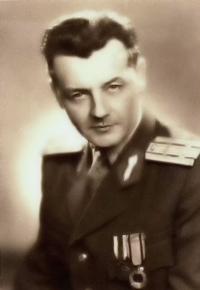We were formed into an independent Czechoslovak tank brigade by the English and put into combat at Dunkerque

Download image
Leopold Fiala was born on November 15, 1917. He studied at a grammar school in Kyjov and later he attended the Faculty of Medicine at Masaryk University in Brno. During his studies he got actively involved in the student riots. He wasn’t allowed to complete his studies due to a shutdown of universities in 1939. About this time he made the decision to flee the country and join the Czechoslovak military resistance abroad. At first he managed to flee via Bratislava to Hungary, where he was, however, arrested and imprisoned in a concentration camp in Tolonzhaz. He nevertheless was able to escape from the camp in 1939 and to get to Yugoslavia. In Yugoslavia, he was arrested for a second time but again managed to escape. In 1940 he got to France on a military transport and after military training became a member of the 1st artillery regiment at Portel. After the defeat of France he was shipped to England where his regiment had shipped the stolen weapons. In England he again served with his artillery regiment. He fought at Dunkerque where he suffered a leg injury. After convalescence - which lasted almost until the end of the war - he returned to Czechoslovakia where he served with the anti-tank artillery unit in Žatec and with other units. He wasn’t politically persecuted by the Communist regime.
